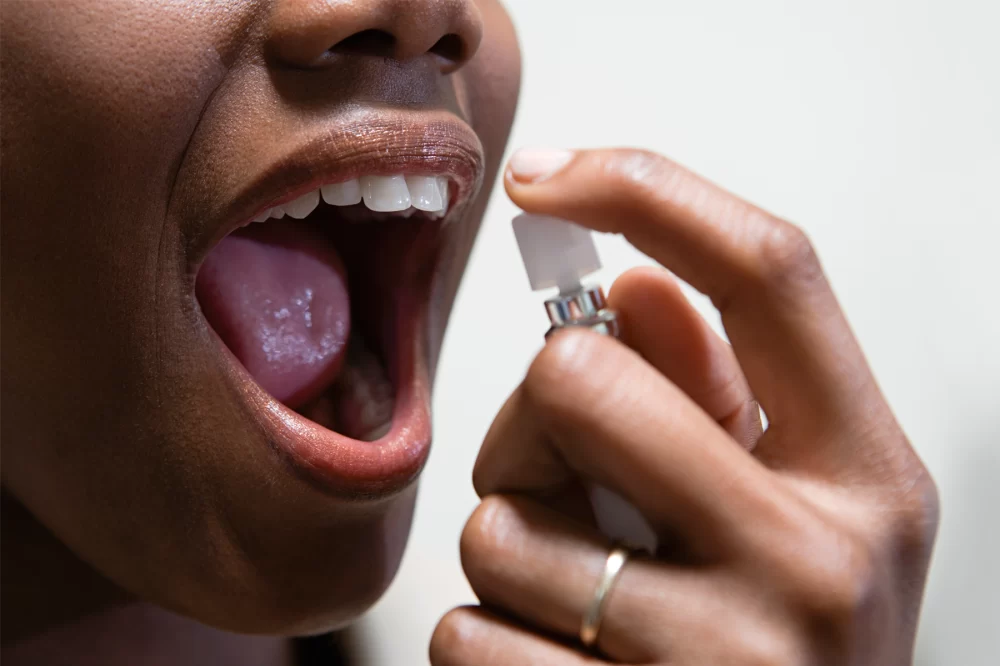
- Understanding-The-Connection-Between-Dry-Mouth-And-Bad-Breath
- Daily-Habits-To-Prevent-Bad-Breath-From-Dry-Mouth
- Natural-And-Medical-Remedies-For-Dry-Mouth
- Real-Life-Experience-And-Professional-Insights
- Finding-Effective-Products-And-Services
Understanding the Connection Between Dry Mouth and Bad Breath
Dry mouth, medically known as xerostomia, occurs when saliva production decreases. Since saliva plays a critical role in washing away food particles and neutralizing acids, its reduction often leads to bad breath. Without sufficient saliva, bacteria thrive and produce unpleasant odors, making bad breath a common complaint among those with dry mouth.
Beyond odor, dry mouth can cause discomfort, difficulty swallowing, and increased risk of cavities. Understanding this link is crucial when exploring how to prevent bad breath caused by dry mouth effectively.
The Role of Saliva in Oral Health
Saliva naturally cleanses the mouth, removes bacteria, and keeps tissues moist. It also contains enzymes that break down food debris and minerals that help repair early tooth decay. When saliva is scarce, bacterial overgrowth results in not only bad breath but also other oral health problems.
Daily Habits to Prevent Bad Breath from Dry Mouth
Adopting a daily oral care routine tailored for dry mouth can significantly reduce bad breath and improve comfort.
Hydration and Mouth Moisturizing
Drinking plenty of water throughout the day helps keep the mouth moist and flushes away bacteria. Using sugar-free chewing gum or lozenges can stimulate saliva production naturally, offering temporary relief.
Meticulous Oral Hygiene
Brush teeth at least twice a day using fluoride toothpaste and floss daily to remove food particles that feed bacteria. Pay special attention to cleaning the tongue, where odor-causing bacteria tend to accumulate.
Avoiding Dry Mouth Triggers
Certain habits and substances worsen dry mouth, such as smoking, alcohol, caffeine, and mouthwashes with alcohol. Limiting these can help maintain saliva levels and reduce bad breath.
Natural and Medical Remedies for Dry Mouth
For persistent dry mouth, additional remedies and treatments may be necessary to prevent associated bad breath.
Saliva Substitutes and Artificial Saliva
Over-the-counter saliva substitutes provide moisture and comfort when natural saliva is insufficient. These products help rinse the mouth and reduce bacterial buildup.
Prescription Medications
In some cases, doctors prescribe medications that stimulate saliva production. These require professional evaluation and monitoring to ensure safety and effectiveness.
Herbal and Home Remedies
Herbs like aloe vera mouth rinses or rinsing with warm salt water can soothe dry mouth symptoms and reduce bacteria. However, these should complement, not replace, professional care.
Real-Life Experience and Professional Insights
Linda, a 52-year-old office manager, struggled with persistent bad breath linked to dry mouth caused by her medication. After consulting her dentist, she incorporated regular hydration, switched to alcohol-free mouthwash, and used saliva substitutes recommended by Dentistry Toothtruth. Within weeks, her breath improved, and her oral comfort increased dramatically.
This story underlines the importance of professional advice combined with consistent care for managing dry mouth and preventing bad breath effectively.
Finding Effective Products and Services
For those looking to find reliable oral care products designed for dry mouth and professional guidance, Dentistry Toothtruth offers trusted recommendations. Whether you need moisturizing rinses, saliva stimulants, or expert consultation, their resources can help you maintain fresh breath and optimal oral health.







 Angela Gum D.D.S.4.0 (86 review)
Angela Gum D.D.S.4.0 (86 review) Midway Dental Center4.0 (16 review)
Midway Dental Center4.0 (16 review) Fair Oaks Orthodontics5.0 (29 review)
Fair Oaks Orthodontics5.0 (29 review) Dentistry at Sea Girt Dr. John Little, Dr. Mary Russo, Dr. Timothy Moriarty & Dr. Aileen Almonte4.0 (79 review)
Dentistry at Sea Girt Dr. John Little, Dr. Mary Russo, Dr. Timothy Moriarty & Dr. Aileen Almonte4.0 (79 review) Milford Family Dental4.0 (114 review)
Milford Family Dental4.0 (114 review) Metropolitan Endodontics4.0 (78 review)
Metropolitan Endodontics4.0 (78 review) The Importance of Oral Health Education During Pregnancy for a Healthy Pregnancy
The Importance of Oral Health Education During Pregnancy for a Healthy Pregnancy Best Tips for Brushing Your Teeth Properly for Healthy Gums: Essential Techniques for Oral Health
Best Tips for Brushing Your Teeth Properly for Healthy Gums: Essential Techniques for Oral Health Why Skipping Dental Checkups Can Lead to Bigger Oral Health Problems
Why Skipping Dental Checkups Can Lead to Bigger Oral Health Problems Advantages of Porcelain Dental Restorations
Advantages of Porcelain Dental Restorations How Can Diabetes Cause Tooth and Gum Problems? Preventing and Managing Oral Health Issues
How Can Diabetes Cause Tooth and Gum Problems? Preventing and Managing Oral Health Issues Healthy Habits for Promoting Good Oral Health and Hygiene: Tips for a Healthy Smile
Healthy Habits for Promoting Good Oral Health and Hygiene: Tips for a Healthy Smile